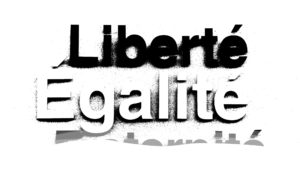
by Rachele Bizzari
On 30th June 2023, the Supreme Court of the United States issued its opinion in 303 Creative LLC v. Elenis, ruling that a Colorado anti-discrimination law violates the First Amendment’s protection of free speech of a website designer who does not want to create wedding websites for same-sex couples.
At the heart of the case are the so-called public accommodations laws, in particular the Colorado Anti-Discrimination Act (CADA), which was amended in 2008 to expand its anti-discrimination protections to members of the LGBTQ+ community. The law prohibits «any place of business engaged in any sales to the public and any place offering services, facilities, privileges, advantages, or accommodations to the public» from denying «the full and equal enjoyment» of its goods and services because of disability, race, creed, sex, sexual orientation, gender identity, gender expression, marital status, national origin, or ancestry. In case of proven infringement, the CADA provides for the payment of a fine up to five hundred dollars. Moreover, the Colorado Civil Rights Commission is entitled to «issue and cause to be served upon the respondent an order requiring such respondent to cease and desist from such discriminatory or unfair practice and to take such action as it may order». Many States have enacted similar laws or interpret prohibitions on sex discrimination to include sexual orientation and/or gender identity, thus representing so far a significant bulwark in the defense and advancement of equality for lesbian, gay, bisexual, and transgender people.
The case involved Ms. Lorie Smith, the founder and sole member-owner of 303 Creative LLC, a limited liability company that offers website and graphic services. The woman claimed she planned to expand her business into the wedding industry, thus creating websites that illustrate how the couple met, what their values and intentions for the future are, and provide information to family members and guests about the upcoming celebrations. Although she argued that she provides her services to all people regardless of race, creed, gender, or sexual orientation, she claimed she did not want to create websites for same-sex couples who intend to enter into marriage as she believes that marriage should be reserved for a couple consisting of one man and one woman. In order to do so, she planned to put a statement on her business’s website explaining that her religious beliefs prevented her from providing web design services to LGBTQ+ people. Fearing that the Colorado law would compel her to provide services to homosexual couples, she went to federal court, seeking an injunction to prohibit Colorado from enforcing its anti-discrimination law against her on the basis of the First Amendment’s right to free speech.
Both the District Court for the District of Colorado and the Court of Appeals for the 10th Circuit ruled that Ms. Smith was not entitled to the injunction. Although the Court of Appeals recognized that Smith’s «creation of wedding websites is pure speech», it concluded that the CADA did not violate the Constitution as «Colorado has a compelling interest in protecting both the dignity interests of members of marginalized groups and their material interests in accessing the commercial marketplace». According to the Court, same-sex couples can turn to others for the website creation. However, they «will never be able to obtain wedding-related services of the same quality and nature as those that Appellants offer».
By a vote of 6-3, the Supreme Court reversed the Court of Appeals for the 10th Circuit’s judgment. In a decision joined by Chief Justice Roberts and Justices Thomas, Alito, Kavanaugh, and Barrett, Justice Neil Gorsuch, who authored the opinion, qualifies Ms. Smith’s website design services as pure speech, thus making them eligible for the First Amendment’s protection. However, he departs from the Court of Appeal in concluding that Colorado cannot compel Ms. Smith to express views contrary to her own beliefs. In other words, Ms. Smith has found herself in the position of choosing between following her conscience or violating the CADA, thus incurring in the risk of facing sanctions. According to the majority, «that “is enough”, more than enough, to represent an impermissible abridgment of the First Amendment’s right to speak freely».
Moreover, Justice Gorsuch hints that such rationale may apply to all services which imply a creative output: «countless other creative professionals, too, could be forced to choose between remaining silent, producing speech that violates their beliefs, or speaking their minds and incurring sanctions for doing so». While public accommodations laws could still apply to goods and services that do not implicate the First Amendment, professionals other than website designers – such as photographers, videographers, writers, painters – who provide a customized expressive service to the public might be free to discriminate some categories of costumers on the basis of their own beliefs.
Justice Sotomayor, joined by Justices Kagan and Jackson, authored a thirty-eight pages dissenting opinion. The minority offers a thorough review of the evolution of public accommodations laws, whose origins date back to the English common law, stressing how they have expanded over time to include new categories of people. Justice Sotomayor identifies the core purposes of such laws in ensuring equal access to goods and services sold to the public and guaranteeing equal dignity in the common market. Indeed, as underlined in the dissenting opinion, public accommodations laws do not « force anyone to start a business, or to hold out the business’s goods or services to the public at large». However, «if a business chooses to profit from the public market [..] the state may ensure that groups historically marked for second-class status are not denied goods or services on equal terms». In other words, CADA does not select a message and compel people to affirm that message, but it only prohibits a form of business conduct. Accordingly, in ruling in favor of Ms. Smith, the Court issued a «new license to discriminate».
The dissenting opinion also recalls how the LGBTQ+ community has experienced a wider backlash in the last months. According to the advocacy group Human Rights Campaign, at least 70 anti-LGBTQ+ laws have been enacted so far this year in Republican-lead States and many more bills have been introduced in state legislatures. Prominent among targets are educational facilities. For instance, in June 2023 Texas’ Governor Greg Abbott signed into law the Reader Act, that forbids public school libraries to purchase books or other school materials deemed to be sexually explicit. Alabama recently enacted House Bill 261, which forces transgender youth to play sports in public colleges and universities consistent with their biological sex. The Florida’s Parental Rights in Education Act – commonly known as Don’t Say Gay Act – has recently been expanded by the Board of Education of Florida, thus prohibiting classroom discussion or classroom instruction on gender identity and sexual orientation from kindergarten to twelfth grade. North Dakota’s Governor Doug Burgum signed into law House Bill 1522, that allows teachers and employees of governmental entities to ignore the preferred pronouns their students and colleagues opted to use. Also, States have tried to put a halt on drag performances, to limit the ability to update gender information on IDs and records, and to restrain access to medical treatment for transgender minors.
In recent years the Supreme Court has supported the LGBTQ+ community in significant decisions such as Obergefell v. Hodges, recognizing the right to marriage of same-sex couples, and Bostock v. Clayton County, ruling that the Civil Rights Act of 1964 protects employees against discrimination based on their sexual orientation or gender identity. Back in 2018 the Supreme Court accepted to hear Masterpiece Cakeshop, Ltd. v. Colorado Civil Rights Commission, a case regarding a bakery who refused to provide a wedding cake to a same-sex couple. In that instance, the Court hold that the Commission lacked fairness and impartiality in evaluating the appellant’s refusal to supply services to homosexual people, showing «elements of a clear and impermissible hostility toward the since religious beliefs that motivated his objection». However, the Court avoided to determine whether the appellant’s freedom of speech had been violated and where to draw the line between freedom of expression and anti-discrimination laws.
In the meantime, the composition of the Supreme Court has changed significantly as President Donald Trump had the chance to nominate three new justices – Justices Gorsuch, Kavanaugh, and Barrett –, therefore altering the balance of the Court. The conservative supermajority has already struck down the longstanding constitutional right to abortion in Dobbs v. Jackson Women’s Health Organization, and in the current term has invalidated affirmative action programs in college admissions in Students for Fair Admission, Inc. v. Harvard.
Commenting on the ruling, President Biden called on the Congress to pass the Equality Act, which has been recently introduced both in the Senate and the House of Representatives «to prohibit discrimination on the basis of sex, gender identity, and sexual orientation, and for other purposes». However, it should be recalled that the ruling does not affect only LGBTQ+ people, but potentially applies to different grounds of discrimination, thus opening the doors for a wider backlash on civil rights of communities which experienced prejudice and inequality in the past.
*PhD Candidate, University of Pisa




